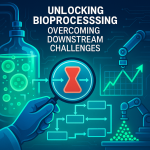💡 Unlike cell-based methods, these therapies focus on using proteins and factors for healing.
🛠️ They are simpler to manufacture, potentially reducing costs and time delays.
📊 Studies highlight benefits such as improved quality control and standardized processes for producing these therapies.
👨⚕️ This innovation could lead to more effective care for heart attack patients.
Introduction:
The article discusses the challenges associated with the commercial development of cell therapies for heart disease and presents “cell-free” treatment alternatives as a more feasible option. Heart attacks, a leading cause of death, result in significant healthcare costs and patient morbidity. Researchers propose that therapies utilizing secreted factors rather than cell replacement may offer a pragmatic solution to heart muscle repair.
- Heart attacks lead to non-functional scar tissue, necessitating effective treatments for heart tissue repair.
- Current cell therapy options, including the use of mesenchymal stromal cells (MSCs) and induced pluripotent stem cells (iPSCs), face manufacturing and scalability challenges.
- Emerging “cell-free” therapies, based on proteins and signaling factors (secretomes), present a simpler manufacturing alternative to traditional cell therapies.
- Researchers highlight successful preclinical evidence supporting the use of acellular therapies, such as biomaterials and extracellular vesicles (EVs), in heart regeneration.
- The advantages of cell-free approaches include standardized manufacturing processes and enhanced regulatory compliance, addressing the issues faced by cell-derived products.
Conclusion:
The shift toward cell-free therapies in the treatment of heart attacks reflects a growing recognition of their practical advantages over traditional cell therapies. This approach not only simplifies the manufacturing process but also harnesses robust preclinical findings, potentially paving the way for accessible and effective heart disease treatment options in the future.



